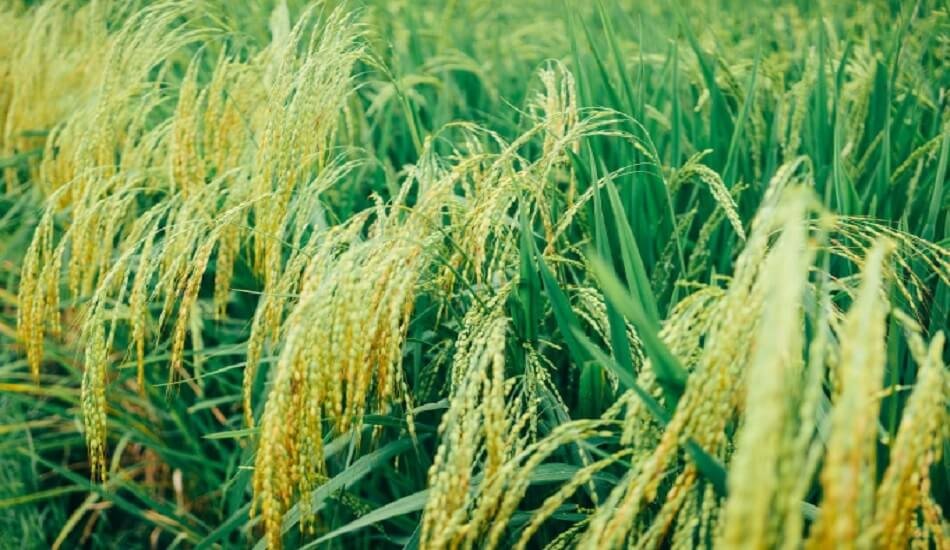India is firm in its pursuit of the exclusive EU label for basmati rice
Official sources have said that India will keep trying to get an exclusive Geographical Indication (GI) label for its fragrant basmati rice in the European Union (EU). India will not consider any other solution because it could affect the exclusivity of the fragrant rice in other markets.
According to traders and experts, the EU is probably trying to ‘browbeat India (from its firm position) in its trade talks to get access to its wines and whisky.’
Also Read | Crisil predicts ₹ 50,000 crores in basmati rice sales this fiscal year
The change comes after the EU tried to get India to change its application to include the areas of Pakistan where basmati is grown or to submit a new application with Pakistan. Since July 2018, there has been no decision on the GI label for Indian basmati rice.
Map of Pak showing Jammu
‘India should accept the EU’s offer, but it can’t. In August 2020, Pakistan released a map showing Jammu as part of its territory. This was after Article 370, which gave Jammu and Kashmir a special status, was taken away.
‘When a joint application is made, the maps of both countries will have to be included. This means that India will let Jammu and Kashmir be a part of Pakistan. S Chandrasekaran, an expert on GIs who wrote the book ‘Basmati Rice: The Natural History Geographical Indication,’ said that this can’t go on.
The Ministry of Commerce and Industry asked the Ministry of External Affairs for advice, and the Ministry of External Affairs told the Agricultural and Processed Food Products Export Development Agency (APEDA) to only pursue the application for the GI tag.
APEDA, which is in charge of getting GI labels for Indian products, has been told not to consider other options, such as submitting an amended application that includes Basmati-producing areas of Pakistan or submitting a new joint application with Pakistan.
12 objections were made
‘Pakistan has not yet decided what basmati means. It doesn’t have a physical standard and hasn’t told the DNA standard about itself. All of these were made in India in 2003, and the Food Safety Standards Authority of India has set a national standard for basmati, Chandrasekaran said.
When asked, APEDA Chairman M. Angamuthu said that India’s request for a GI tag for basmati in the EU had been met with 12 objections, two of which came from Pakistan.
‘According to EU rules, the legal representatives of APEDA have been asked to talk to the legal representatives of those who objected to India’s GI tag application. ‘Discussions only happen between representatives, and neither APEDA nor government officials are involved,’ he said.
‘Since the time for consultations and informal talks with people who don’t like our application has ended, our lawyer has sent reports to the European Commission. ‘The EU is now looking into it,’ he said.
EU feeling obliged
Official sources said that the EC ‘feels obligated to protect basmati from Pakistan and India’ and that it prefers a single registration for the name ‘Basmati’ ‘to respect the rights of both origins.’
‘Why is the EU going out of its way to help Pakistan when it has to stick to the standards of authenticity and quality? ‘It looks like the EU is trying to play games, but they don’t realise that India is in a good position,’ he said.
From 2001 to now, India’s exports of basmati to the EU went from 100,000 tonnes to 400,000 tonnes, then went down to 150,000 tonnes.
‘At the same time, the country’s total basmati exports went from 1 million tonnes (mt) to 4.5 mt, with West Asia buying more than the EU. Also, the UK, which makes up 50% of the demand for Indian basmati, had left the EU,’ the expert said.
Also Read | India’s basmati rice export to Iran fell by fifth year lowest as its currency worsen
Also, he said, the EU has no reason to negotiate because the problem with the fungicide tricyclazole being left behind in rice shipments is going away.
Single document hope
‘Is the EU trying to give Pakistani basmati, whose sales are down 35% this fiscal year, a breath of fresh air?’ Chandrasekaran wondered.
Angamuthu said that the European Commission has received information about the growing areas in Pakistan. He said that the European Commission is likely to ask Pakistan to show that the growing areas meet the environmental factors of the single document, just as India did in its GI application.
Official sources say that the Commission hopes that its officials will be able to work together with Indian and Pakistani officials to make a single document. ‘Such a change could affect APEDA’s applications that are still being processed in other countries because the Intellectual Property offices in those countries could object or Pakistan could object.
Angamuthu, on the other hand, said that APEDA had started more than 1,000 actions, such as lawsuits and cancellations, in more than 40 countries on five continents to protect the name ‘Basmati.’ It stopped people from taking names like ‘Basnati,’ ‘Kasmati,’ ‘Texmati,’ ‘Tasmati,’ ‘Jasmati,’ ‘Basma,’ and so on without permission.
Forcing surrender
‘APEDA made RiceTec Inc., a US company, give up a lot of claims from a patent it had taken out in the US. These claims would have given RiceTec Inc. a monopoly on growing, making, and selling rice grains. This would have made it possible for the US to sue India for patent infringement if it sent basmati to the US.
Also Read | Europe and Egypt like to buy Indian rice for their growing demand
So far, Basmati from India has been given a Geographical Indication label in four countries and a certification mark in seven countries, including the UK and China.
‘Applications for GI, certification marks and a logo for Basmati have been sent to over 20 foreign governments. The EU, the US, New Zealand, Australia, Canada, Sri Lanka, and other countries are among the most important ones where India’s applications are in different stages of review, the APEDA Chairman said.


















Add Comment